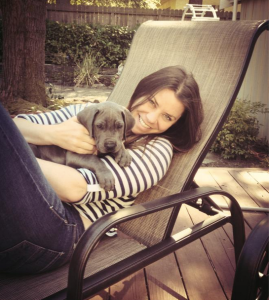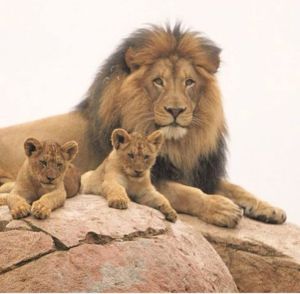WHY CECIL, WHY NOT YEMEN?
Reading about the current food shortage crisis in Yemen (The UN reports that 1 in 5 are food insecure and in urgent need of external assistance.), the killing and / or maiming of eight children every day, and the death of over 400 children since eruption of the recent violence in that war torn country, I pondered the how’s and why’s of tragic events; and why we as humans are driven to action by certain tragedies, yet are accepting of other tragic events as “that’s just the way it is” and go about our lives?
In the broader picture, as I sip my morning coffee and my evening wine (clearly, this article was not pieced together in a single morning), I was thinking about this story and comparing it to the tragic and senseless killing of Cecil the Lion. Cecil’s story became national and world news, went viral over social media, and continues to instill demand for change. Yet, there is barely a mention of Yemen’s plight in the newspaper, and I would venture to guess that the majority of the world has no idea this is even going on; and maybe don’t really care.
At the same time, think about these statistics published on the website “It’s My Life”:
• Every 6 minutes, an American dies in a hospital, either from a medical error or lethal infection.
• Every 10 minutes, an American is killed in an accident at home.
• Every 11 minutes, an American is killed in a traffic accident.
• Every 13 minutes, an American dies due to accidental poisoning.
• Every 29 minutes, an American is murdered.
• Every day, 28 Americans are killed by a drunk driver.
• And every day, a total of 2,600 Americans die from all combined events – natural and unexpected.
So, 2,600 deaths occurring every single day, seven days a week, 52 weeks a year; and no time off for holidays and vacation. And, of course, these are just U.S. statistics.
Expand these statistics worldwide and add starvation, terrorism, and deaths attributable to the escalation of war. Then add discriminatory practices based upon skin color, gender, and sexual orientation. And don’t forget human trafficking, drug addiction and disease.
People, we have a lot of problems! And each of these problems demands attention and warrants action. Yet, how many of us contemplate these tragic events and how many of us truly take action? These events all anger us, but my guess is very few of us truly demand change.
The question is – Why don’t we? Or shall I ask, why do we select certain causes to champion and others we just accept as fact? It is a difficult question to answer and I am no different from anyone else. I too have certain causes that are dear to my heart, and others, not so much. But does that make me a bad person because I choose some causes over others? Most would say I am not.
What if someone provides financial support to aid workers in third world countries, while California wildfires destroy hundreds of homes; and displace hundreds of families who escape with nothing more than the clothes on their backs? Should we be helping people in our country of origin before we help someone in another country? This is not a judgment question, because both need help and both deserve help.
I raise these points because many people have been impacted deeply by the death of Cecil the Lion and have demanded justice and action. However, many of those impacted haven’t simply read the story and stewed in silence. Hundreds of thousands (or perhaps millions by now) have signed petitions, have emailed and written their governmental representatives, protested, boycotted and have taken other action steps to demand justice and to demand change.
The critics, of course, are quick to point out that there are many more important tragic events warranting the energy and attention devoted to Cecil. And those critics have a right to their opinion. However, I would ask anyone that before they accuse, to give thoughtful contemplation, consider the following and help me understand the new ground rules of compassion:
• If you believe there are more important issues of which I (or anyone) should be focusing their attention, what person, agency or organization do we task with that responsibility of prioritizing the cause du jour of everyone’s singular focus?
• If you are tasked with the responsibility of determining the issue or issues that I should focus my energy, I am assuming that I also have the opportunity to determine where you focus your energies? After all, who is to say you are right and I am wrong?
• What if a similar or worse tragedy occurs and warrants a new prioritization of energy and effort on the latest cause? Do I have to redirect all of my efforts to this newest tragedy, or am I allowed to balance my time between the two?
• Are you investing your time and energy for positive change, or are you just criticizing my passions? Because if you are simply exerting negativity and not doing anything positive toward change in your life or in the world, you really don’t have any room to criticize my choices.
• What are the circumstances in which I might be allowed to fight for a cause that you would normally not approve as a priority? For example, if I am dyslexic and understand all too well the daily challenges of living with dyslexia, am I allowed to focus my time and energy on bringing awareness and change to this disability?
• If I know someone that suffered sexual abuse as a child and know how that has affected that person their entire life, am I allowed to champion that cause?
Needless to say, several of these questions are rhetorical or of a sarcastic nature. But the point is, there is not and never will be an official organization that decides where we focus our philanthropic energies – at least I hope not, and certainly not in those countries that celebrate democracy and freedom. And at the end of the day, if I am spreading good energy by doing something positive that benefits the world – isn’t that what is most important?
Certainly, there are many that believe man has dominion over the earth; and therefore the prioritization of our wants and needs as humans always trumps that of the animals, of nature, and of the environment. And therein lies the criticism of those supporting environmental or animal rights causes.
But should the wants and needs of the human race be of a higher priority than that of the environment? And does having the dominion over the planet equate to giving us unilateral authority to run roughshod and having an attitude of “the hell with the environment”, as long as it benefits mankind?
Most would agree that we do not have that right, and that protecting the environment and protecting the wilder and untamed versions of ourselves is not such a bad idea. Additionally, while the literal interpretation of dominion is “to rule or control”, the most common reference and incorrect interpretation of this word is from Genesis 1:26: “God said, Let us make man in our image, after our likeness: and let them have dominion over the fish of the sea, and over the fowl of the air, and over the cattle, and over all the earth, and over every creeping thing that creeps upon the earth.”
But, dominion can better be explained within the greater context of the Bible, looking at how God expected people to act when he entrusted them with a responsibility and leadership over others. So, a word that more poignantly and accurately describes the expectation and responsibility we have is that of steward. We should be viewed as stewards of the earth, and as such, are expected to aptly manage our resources. We should be of the mindset of conservation. And we should approach life with a belief that when we breathe our last breathe, we can honestly say that we left the world in a better place.
And if I devote my time, effort and money toward a cause that saves or protects a species, doesn’t that better the world? And in bettering the world, doesn’t this benefit future generations? I don’t believe anyone would disagree with that. And in conclusion, I would ask that next time you (or I) read or hear of someone giving their time, energy or money to a charity or cause we would not support, think about this commentary.
And remember….”Spread Good Energy and Pay It Forward.” These words were part of Brittany Maynard’s final Facebook post, before the 29 year old woman passed away with inoperable brain cancer. Those were her dying words, but they are words the rest of us should live by, as long as we have a breath.



Of the many reasons people would toss out to the public to imply that Cecil’s death is less important than a humanitarian crisis in another country is attempting to throw a smoke svreen over Cecil’s murder using a tragedy involving the human race. That so doesn’t work on me. There are many issues to work on in the world and all of them are important and equal. Advocates can choose an issue they feel they are passionate about and work toward a solution. It just depends on where our individual talents will do the most good.
LikeLike
Thank you Judy. Yes, you are correct. For me, when Cecil’s story broke, I was as angry as everyone else, but unlike other tragedies that unfold, this story inspired me to write…something I really had not done in quite a while. I just started typing on the keyboard and 1 page became 2 pages, then became 3 pages. I told my wife that it was too long for a Facebook post, but she said don’t worry about it. Just write. So, my first article “An Agent of Change” turned out to be 10 pages, and found a home on both Big Cat Rescue’s and One Green Planet’s websites. The words came from my heart and went directly on the page. It was almost as if Cecil himself was writing it. So, this just happened to be my passion. I don’t know where it came from, but perhaps my talents are best served for this cause. But like you said, someone else may have talents that are better suited for another cause. That doesn’t mean they don’t support my cause and I don’t support theirs. Thank goodness everyone doesn’t focus on the exact same cause, and thank goodness everyone doesn’t want the same career path, and thank goodness we all don’t want to live in the same city and drive the same car. We are all different, so our causes will be different. But they are all good causes, all worth supporting. But most critics truthfully are people that are not doing anything to help anybody and criticizing your choices somehow makes them feel better about themselves.
LikeLike
Just because people are vocal about one particular issue does not mean they are any less sympathetic to another. Any compassionate person outraged at the killing of #cecilthelion would be just as outraged at humanitarian issues. And I would ask the critics: What are YOU doing to make this world a better place?
LikeLike
Thank you Jeanne. That is exactly right. I was amazed at how many people out there were criticizing people for being upset about Cecil, and this is something I had wanted to write about for a while, but just got around to writing this the other day. But I think it also paints a broader stroke as to the challenges we face when taking up causes for wildlife and animals in general. Many people still view animals as material possessions, disposable property, and less important than man. Of course, many of us strongly disagree. Those critical of Cecil support are not necessarily going to change their minds after reading this; but, I am simply trying to raise the awareness that doing anything positive in this world is a good thing. Of course I probably could have addressed one other huge fallacy of the critics. Most of them think the outrage people have over Cecil is just about Cecil. Yes, we are definitely outraged over Cecil, but what they don’t understand is Cecil is the tipping point, the straw that broke the camel’s back, the “Enough is Enough!” story and people are tired of it. He is the Agent of Change.
LikeLike
Great writeup.
There are many causes out there and we each have a right to how we dedicate our time and energy. To go around bashing people for being passionate about something we’re not passionate about is rather bigotry. One of our community member shared about an article on how to confront someone criticizing you for not being passionate about their cause earlier this month. Love how you shared a positive interpretation of the bible that many hunters use to justify their actions. I do agree that we are called to be stewards and care taker of the planet!
LikeLiked by 1 person